
Energy efficiency in buildings
The efficient use of electricity and heat is one of the most important criteria in building and is dealt with in detail in legislation. Standards and technical regulations play a central role in the planning and implementation of construction projects and the operation of buildings - above all the German Building Energy Act (GEG) and DIN V 18599 for calculating energy balances.
Information on these page:
Our online collection of standards contains over 170 national, European and international standards - specially tailored for anyone who wants to work with the GEG in an easy and legally secure way.
Reaching climate targets with the GEG
Almost 40 percent of energy consumption and about one-third of greenhouse gas emissions in Germany and the EU are caused by buildings. The German government’s Climate Package was therefore accompanied by the Building Energy Act (GEG). The bundle of directives and regulations not only affects the building envelope, but also technical building services.
To achieve the 2030 climate targets, CO2 emissions in the building sector must be reduced. In the past, it was a matter of ensuring that buildings did not lose too much energy; today, they have to produce their own energy needs for electricity and heat. The Building Energy Act (GEG) and DIN V 18599 on calculating energy balances play a central role in this. The values determined are also presented in the energy certificate, which is intended to provide renters and buyers of real estate with guidance for their decisions.
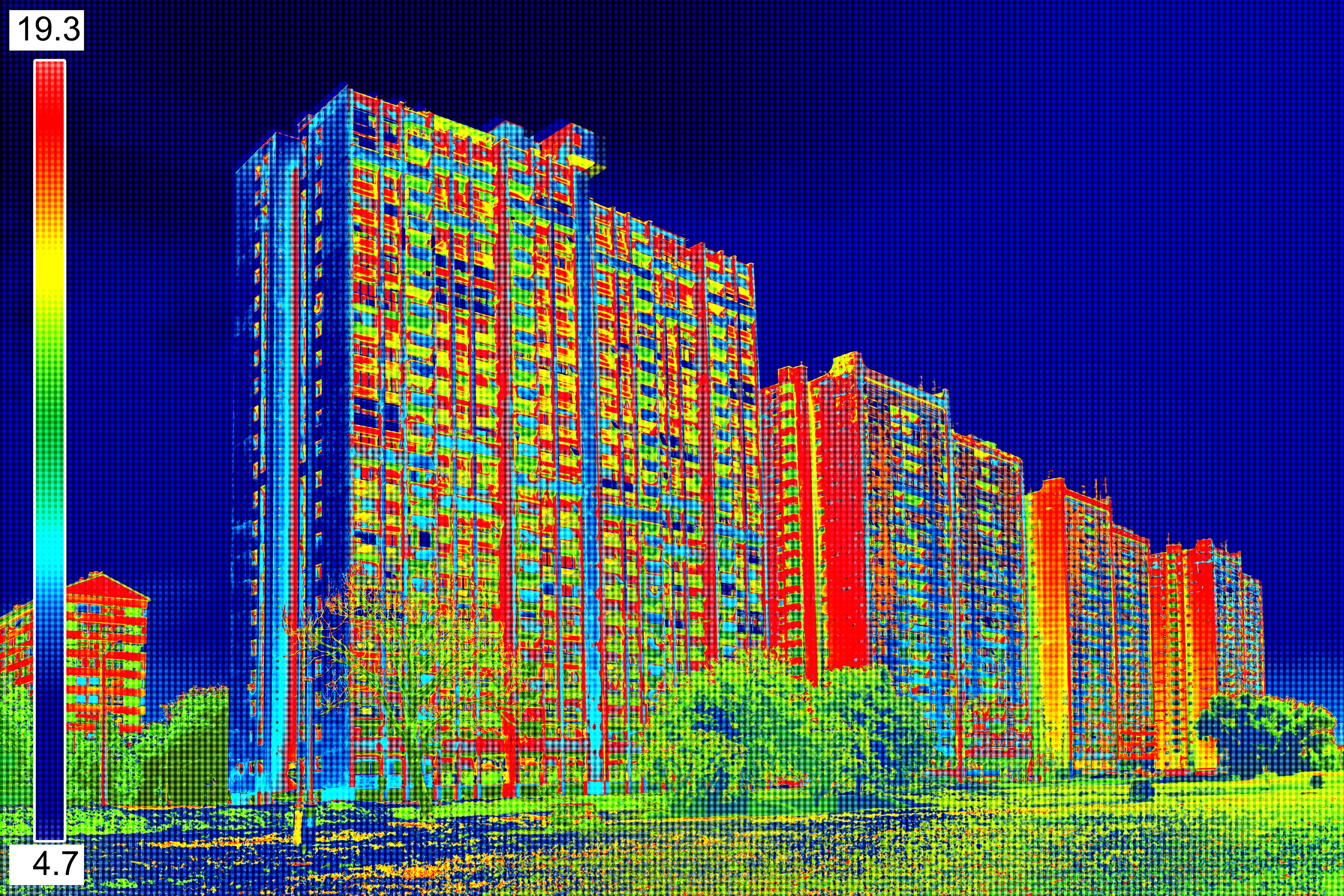
What does energy-efficient building mean?
Rising energy prices, a strain on the climate and the environment: The urgent need for energy-efficient and sustainable building has never been higher than today. Lighting, heating, hot water and cooling account for a large portion of the energy balance of buildings. Through better planning and intelligent building control, new and existing buildings are to become climate-neutral. The goal: to save almost 50 million tonnes of CO2 by 2030.
This is a major challenge for the building industry and the trades, because different sets of regulations have been applied up to now for residential and non-residential buildings, and for new buildings and the renovation of existing buildings, such as the German Energy Saving Ordinance (EnEV) or the German Law to promote the Use of Renewable Energies for Heat (EEWärmeG).
Energy-efficient building affects all building services trades. For example, it is possible to reuse rainwater and grey water, to generate electricity through renewable energies, to ventilate in a controlled manner with heat recovery or to control light efficiently through building automation. A “passive house”, for example, is defined by an annual heating requirement of less than 15 kWh/m². Most of the heat required is generated by passive energy sources such as solar energy, waste heat from people and technical equipment.
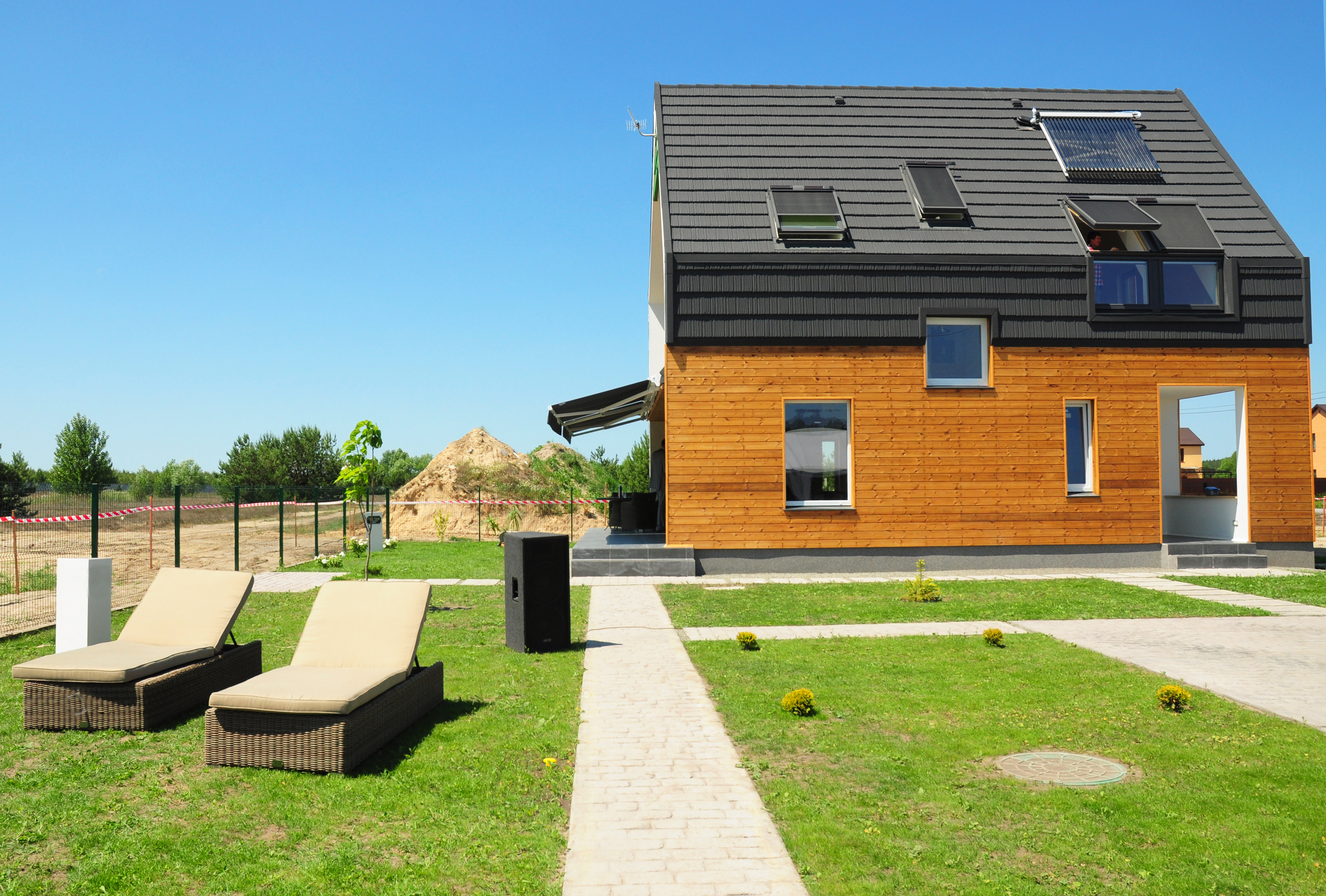
The 2020 Building Energy Act (GEG) in brief
Politically wanted
The European Union sets the targets that will lead to a sustainable competitive, secure and decarbonized energy system in Europe. Accordingly, it has adapted the directives on "energy performance" in general via the "energy performance of buildings" in particular. Each country in the EU must therefore present a roadmap that contains the milestones for 2030, 2040 and 2050 - so that the EU's energy efficiency targets can be achieved. In Germany, for example, the "Act on Energy Saving and the Use of Renewable Energies for Heating and Cooling in Buildings", or "Building Energy Act" (GEG), was passed in 2019.
Simplicity through consolidation
In the GEG, the already existing laws are brought together in their current state in a single regulation. Until now, the EnEG (German Energy Saving Act) defined the framework for building construction and the EnEV (German Energy Saving Ordinance) defined the details of building physics plus the technical specifications. In addition, there was the EEWärmeG (German Law to promote the Use of Renewable Energies for Heat), which regulated the use and expansion of renewable energies in the heating and cooling sector. The introduction of the GEG reduces bureaucracy and simplifies the energy requirements for new buildings, existing buildings and the use of renewable energies.
Changes due to the GEG
The GEG took effect on 1 November 2020. The rules applied in Germany from the EnEG, EnEV and EEWärmeG already placed a high level of requirements both in the area of new construction and renovations. It’s important to know:
- The rules from the laws still in force will not be made stricter.
- In addition, a nearly zero-energy building is defined. Such buildings will lie within the scope of the already valid specifications of the EnEV, because the cost-optimal benefit demanded by the EU will have already been achieved by them.
- Oil heating systems - with some exceptions - will be banned from 2026.
- The use of renewable energies for heating and cooling, which was already required by the EEWärmeG, has been adopted and is now mandatory for new buildings.
- The potential of a newly constructed, very energy-efficient building in a community or urban neighbourhood can be "offset" against a building in need of renovation.
- The design principles are laid down in DIN V 18599. The DIN 4108 design guideline that has been valid until now can still be used after the GEG the came into force until the end of 2023.
Support for building owners
According to the EU Commission, buildings account for 40 % of energy consumption and 36 % of CO2 emissions in the EU. Currently, about 35 % of buildings in the EU are over 50 years old. Increasing the energy efficiency of buildings could reduce overall energy consumption in the EU by 5-6 % and CO2 emissions by around 5 %. Therefore, as of 31.12.20 all new buildings must also be constructed as nearly zero-energy buildings. In the case of high-quality new buildings or energy-efficient building refurbishment, building owners can therefore access investment subsidies from the federal government. For this purpose, the investment and redemption subsidies were increased by 10 %. A premium for switching from oil heating to climate-friendly heating systems was decided in addition to the existing subsidy programmes.

The GEG and the energy certificate
Mandatory energy consultation when buying or comprehensively renovating will become compulsory in addition to the energy certificate. Sellers or estate agents must offer a consultation based on the energy certificate when selling a detached or semi-detached house. This discussion is held with an energy advisor from the consumer advice centre. Likewise, the duty to consult applies before commissioning a refurbishment. Thus the energy performance of the building refurbishment is determined.
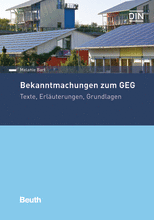
from 38.00 EUR VAT included
from 35.51 EUR VAT excluded
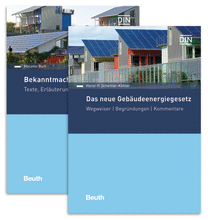
Publication DIN Media Recht 2022-01
Gebäudeenergiegesetz (GEG) und Bekanntmachungen zum GEGfrom 76.00 EUR VAT included
from 71.03 EUR VAT excluded
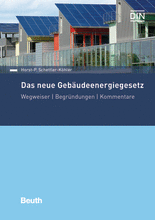
Publication DIN Media Recht 2021-01
Das neue Gebäudeenergiegesetzfrom 52.00 EUR VAT included
from 48.60 EUR VAT excluded

Am DIN-Platz | Burggrafenstraße 6
10787 Berlin
- Phone : +49 30 58885700-07
- E-Mail : International@dinmedia.de
